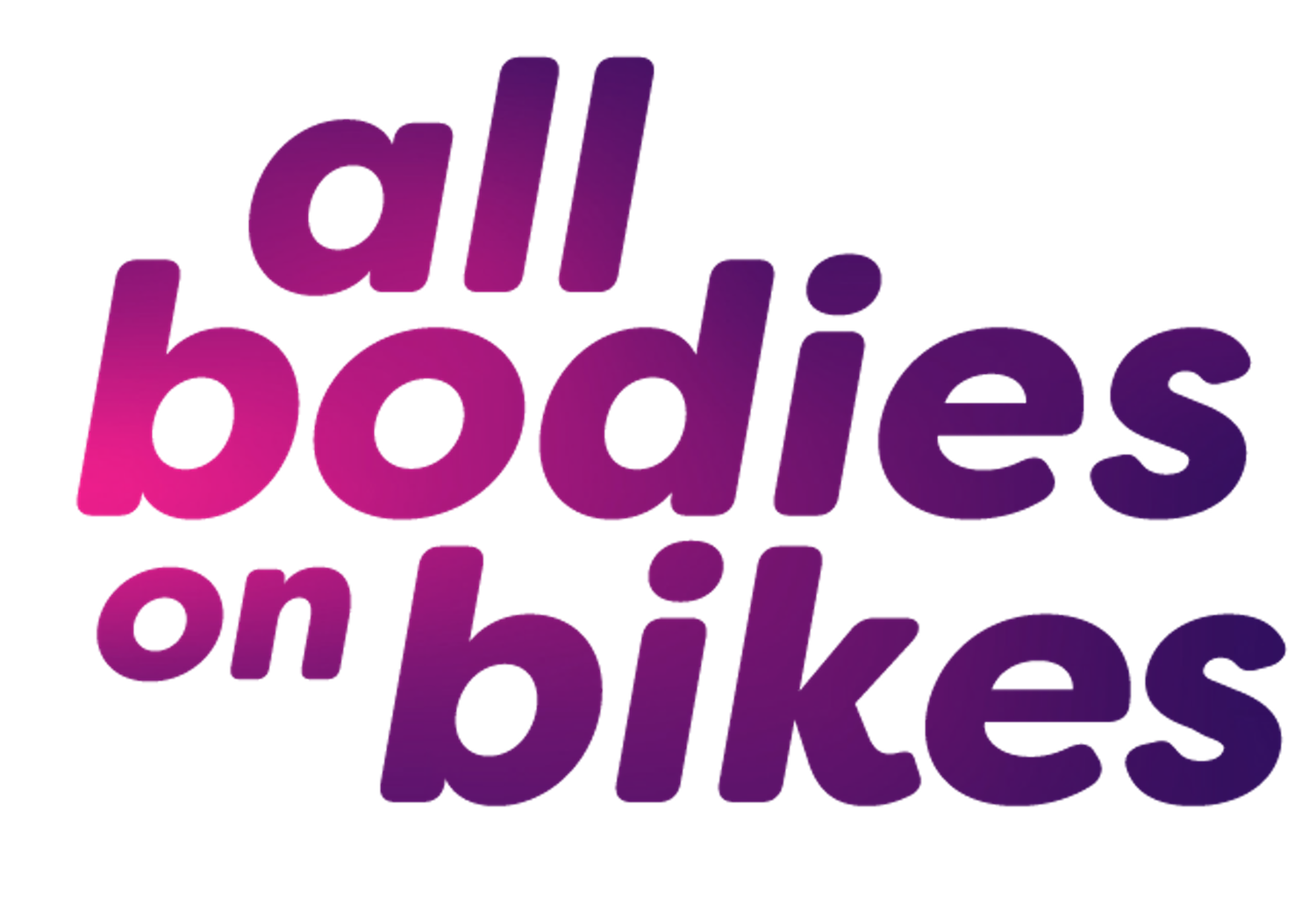All Bodies on Bikes
Marley Blonsky & Kailey Kornhauser, featured in the Shimano film All Bodies on Bikes, self-identify as fat cyclists. To help facilitate discussion around the film, they assembled this guide and included resources for further exploration.
Glossary - Words to Use and Words to Avoid
Language is very powerful and can set the tone for a productive conversation. It can also be very harmful. The guide below is based on Marley & Kailey’s experiences. Feedback is welcome.
WORDS & PHRASES WE LIKE:
Fat - Marley & Kailey both identify as fat women and intentionally use this language to describe themselves. Words only have the power we give them. As Kailey says in the film, the word fat has been used for a long time to mean “ugly, lazy, stupid, not worthy of love” and it is our goal to reclaim this word as a neutral descriptor of our bodies, similar to how we use “blonde”, “short” or “tall” as descriptive words. Fatness is simply one aspect of our bodies and deserves to be described as that - simple and unimportant.
We also intentionally do not use any of the common euphemisms for fat - curvy, overweight, fluffy, thick, voluptuous, big-boned, etc. and ask that you don’t either.
Fat Spectrum - As with many things in life, identity exists along a continuum and is not a binary. Within the fat world there exists a fat spectrum, which we first heard articulated on the “Fat Lip Podcast.” We find thinking about fatness and our identities within this framework to be helpful, as it recognizes relative levels of privilege, even within a marginalized community.
Marley and Kailey both identify as small to mid-fats and recognize the privilege that comes along with that designation, including the ability to ride a standard bicycle and fit into standard clothing sizes.
People/Person in a Larger Body - We do not use the word fat for anyone who has not explicitly personally identified themselves that way or given us permission to use it. Instead, we use “Person in a larger body” or “Larger Bodied People”, as it is value-neutral.
WORDS WE AVOID/DON’T USE (AND ASK YOU TO JOIN US):
Obese/Obesity - The word “obese” comes from the latin word obesus, which literally means “having eaten oneself fat,” which inherently blames fat people for their bodies. We kindly request that you do not use these words. These are medical terms that have been used to pathologize fat people and do not serve a purpose in this dialogue.
Overweight - Similar to the previous words, we ask that overweight not be used. It implies that there is an ideal weight and that one can either be over or under, and we would prefer to use neutral language.
Ground Rules for Discussion
Discussions around weight, body type, and body size can be emotionally fraught and sensitive topics for many people. We recommend establishing ground rules at the beginning of conversations and encourage the group to keep themselves accountable.
We kindly suggest the following:
Fat is not a bad word.
No diet talk, either of your own or others.
Be aware of the spectrum of sizes and shapes the human body comes in and recognize that you may live with size privilege.
No body shaming.
Beware of coded language or phrases. Some examples of this are
Calling someone brave for wearing a swimsuit or outfit
Congratulating someone on losing weight
Assuming a person is a beginner because of their body size
Sharing words of encouragement only to people in larger bodies
Celebrate your body for what it can do, not what it can’t.
Discussion Questions
These questions work great as self-reflection questions, either before or after the film. When we’re leading a group, we like to pose these questions and give participants time to reflect quietly, writing notes for their own use. Depending on the size of the group and the intimacy level of participants, it can work well to then share responses in either small groups, or back in the bigger group all together.
These questions can be modified as needed – they are currently cycling specific, but can be changed for any type of activity.
· What do you love about your body?
· When do you feel limited by your body?
· What does it physically feel like to move your body on a bike? What do you love about the act of cycling?
· What does your dream day on a bike look like? What is holding you back from that?
· How can you be an ally to people of all sizes as a leader in the community? In the bike community specifically?
· Riding a bike is a physical activity- there is no getting around that and there are some very real limitations for people in a larger body, or who have disabilities/chronic illnesses, etc. How can we create spaces that are welcoming and accessible to all that allow anyone who wants to enjoy the fun/freedom/power of this activity?

